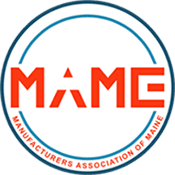LD 1537 – “An Act to Amend the Laws Relating to the Prevention of Perfluoroalkyl and Polyfluoroalkyl Substances Pollution and to Provide Additional Funding”
The Manufacturers Association has been actively engaged with others in the business community to communicate the interests of our membership on the PFAS legislation reflected above. On Thursday March 7, the ENR Committee of the legislature held its first work session following the 2023 public hearing on the subject. It was noted at the onset by Sen. Stacy Brenner (committee co-chair) that while some time had clearly passed since the public hearing, there had been – behind the scenes – much work going on wherein stakeholders were negotiating over the best path forward given the broad interests by all to mitigate the impact of the so called “forever chemicals” on the health and welfare of the citizens of the state, and the state’s interest in doing so quickly and effectively, while working to not unduly impact the employers of the state. In her remarks at the PFAS Forum sponsored by the Maine State Chamber the day before, Sen. Brenner reminded the participants that the legislative process was an iterative one, and that while the committee is working to move as quickly as it can, there is clear recognition that even the proposed amendments are not the end of the road. The committee, the state and the Department will all continue to learn from each step in the process, as well as the experience of other states moving down the same path, and continue to propose modifications in Maine’s approach to achieve a long-term sustainable policy that protects the environment and everyone’s health, while preserving the character of Maine’s economy to the best of their ability.
The work session focused on two amendments that had much of the same language, fostering a reconciliation of the variances during the work session. One version was sponsoring Senator Ingwersen’s proposal, and the other the version of the amendment that had been negotiated between the DEP, Defend our Health (an Environmental advocacy group) and the Maine State Chamber of Commerce. MAME member IDEXX was also a participant in many of the discussions representing their veterinary market interests and those of manufacturers at large. MAME was present during the entirety of the work session, and recorded notes on the discussion for everyone’s benefit. A full recording of the work session can be found here (once posted), with the current sponsor’s amendment located here in the event you are interested in the entirety of what has been proposed. At the end of the work session, the committee tabled the bill so that the committee could absorb what they heard and come back to the dialogue at a future date. There were also several commitments by participants to return data to the committee in support of claims made for or against elements of the amendment. The notes we recorded are as follows:
- The goal of the work session would be” for the committee to hear the outcome(s) from the extensive dialogue and weigh in.”
- The two amendments were “fresh” on Thursday, so most committee members had not had the ability to review prior to the session.
- There were a number of additions to the definitions in support of new exclusions reviewed by the sponsor, many of which also aligned with definitions from MN and other states, including, artificial turf, adult mattress, cleaning products, cookware, cosmetics, “currently unavoidable use”, “intentionally added”, juvenile products, medical devices, outdoor apparel, ski wax, textile, upholstery furniture .
- It was noted by the sponsor that the definitions in the DEP version were broader, including aircraft, automotive components and others (again in support of the addition of more exclusions).
- The notification language in both amendments now limits notification to those products with intentionally added PFAS, for which the Dept (DEP) has determined the use of PFAS as a currently unavoidable use. (Exemptions would be excluded from the notification requirement).
- The committee then requested a specific review of the rationale for each exemption.
- Discussion around the addition of fluorinated containers, added by the chair to reflect the challenges of fluorine added to cleaning solution bottles (to improve impermeability but degrades over time and could get into the waste stream).
- Discussion surrounding the extension of the ban deadline to 2032 in part to align with those in other states.
- Discussion around the assertion by the sponsor that “52% of PFAS sources” had been identified as fugitive emissions of HVAC refrigerants, and questions by the committee on suitability of substitutes currently commercially available.
- Discussion surrounding the inclusion of a “total weight” reporting mechanism for reporting companies to use if they have no ability to secure information in suitable granularity from upstream suppliers (i.e., being able to reflect the total weight to assure a conservative assessment about the potential risk for the component/product in question).
- Discussion regarding the increase in the exemption to companies with employment of 100 EE’s or less (up from the previous 25).
- Additional discussion on the benefit of HFO’s vs. HFC’s as a refrigerant substitution, noting that as currently written, HFO’s would be banned under the current legislation. A representative from Honeywell testified subsequently about the “federal support for the use of HFO’s a non-toxic, climate friendly approved substitution for HFC refrigerants.”
- IDEXX provided a formal affirmation that – as written – the amendment would afford them the opportunity to “continue operating in Maine for many years.”
The committee approved a tabling motion and dispersed at approximately 4:30pm.
